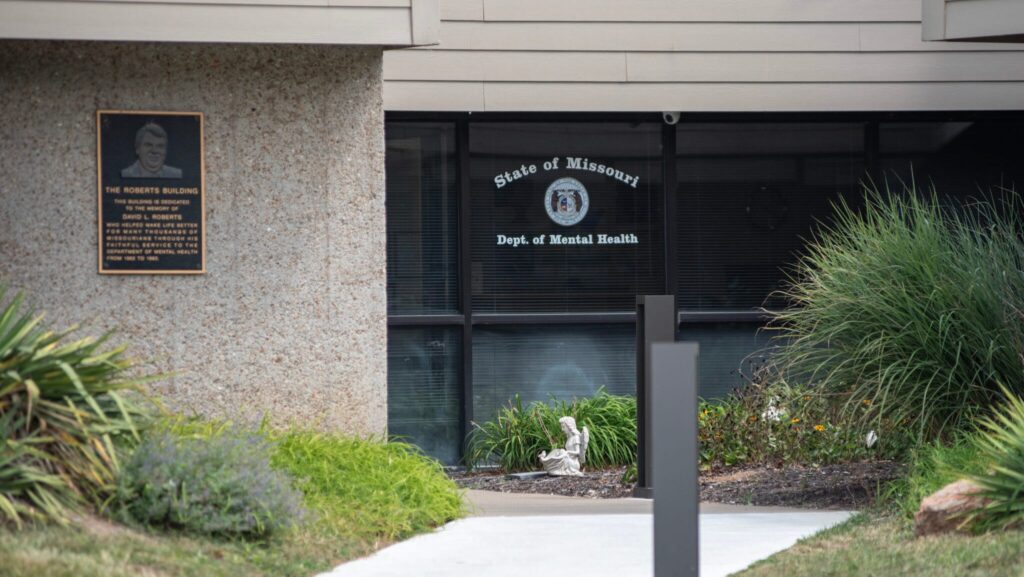The number of people in Missouri prisons needing court-ordered mental health treatment is currently 344, and the wait time for a hospital bed is an average of one year.
That’s up from 254 during the same period last year, according to data provided to The Independent by the Missouri Department of Mental Health. A department spokesman said the number of people waiting for treatment in jails is likely to continue to rise because the department’s inpatient beds are full.
Debra Walker, a spokeswoman for the department, said February was the first month the number on the waitlist exceeded 300.
None of the people on the waiting list have been convicted of a crime: They’ve been arrested, found incompetent to stand trial and ordered by a court to undergo mental health treatment, a process called competency restoration that typically involves therapy and medication, to help them stand trial.
“We want to increase the number of people receiving competency restoration services,” said Janet Simmons, deputy director of the Missouri Department of Mental Health’s Behavioral Health Division, during a Mental Health Committee meeting earlier this month. “The number of people waiting for these services is growing.”
Missouri has struggled with this issue for years, with rising court referrals for competency restoration, staffing issues and limited psychiatric hospital capacity. The situation has worsened over the past year.
Congress allocated $300 million to the Department of Mental Health this year to open a new hospital in Kansas City, but construction could take as long as five years to complete.
State officials are also working to implement a “prison-based competency restoration” program approved by the Legislature this year in response to the problem. This year’s budget sets aside $2.5 million to bring prison-based competency restoration to jails in St. Louis, St. Louis County, Jackson County, Clay County and Greene County.
The prison-based competency restoration services would include room and board, 10 medical slots for each prison, contracted staff from local behavioral health organizations, and psychiatric treatment provided by “mobile team practitioners.”
The department is currently training two Kansas City agencies that will travel to county jails to provide treatment inside the jail, with Clay County having a “tentative start date” set for September, Simmons said.
“So we’re really looking forward to that and we want to get started on that because we believe it’s going to take a multi-pronged approach to target those numbers,” she said.
Simmons said officials are sending out mobile teams of physicians who will go to county jails to prescribe medications and “try to get people started on the medications they need to stabilize their mental illnesses.” Officials are working with local behavioral health liaisons and jail mental health and medical staff to provide services to people, Simmons said.
The Department of Mental Health is also working to provide courts with information about outpatient recovery for people who can be treated safely in the community and don’t need hospital-level care. A law passed this year gives the department the authority to provide outpatient treatment for certain people who are arrested.
“Sometimes it seems like the courts aren’t really considering outpatient treatment as an option,” Simmons said of outpatient treatment. “It’s something that’s very new.”
Other states, including neighboring Missouri, have filed lawsuits over similar wait times, arguing they violate individuals’ rights to due process and the Americans with Disabilities Act.
A federal lawsuit filed in Oklahoma last year alleged that prisons were holding patients for three months to a year. A proposed settlement set a maximum 60-day waiting period as a benchmark, with an eventual goal of 21 days, but it faces opposition from the governor.
A lawsuit filed in Kansas in 2022 alleges that people are being held in jail longer than they would be if convicted, waiting for a psychiatric bed, and a national study found that many of the charges are misdemeanors.
More: New law and state funding brings mental health treatment to jails, including Greene County
Missouri county sheriffs and jail administrators have warned they are struggling to care for people held pretrial, and state officials acknowledge that long wait times are contributing to worsening mental health conditions.
The Missouri Sheriffs’ Association recently published a magazine called Missouri Jails that focuses on managing mental health issues in county jails, and it gives several examples of local issues, including one case where a county spent $30,000 to put a suspect on 24-hour monitoring for two months because there was no room in its secure medical center.
Some county sheriffs are considering building new or expanding jails to address the problem, such as adding more cells to separate those diagnosed with mental illnesses from the general inmate population, according to the magazine, and some have contracted with a private provider, Turn Key Health Clinics, to provide extra mental health care for inmates awaiting transfer.
“As mental health experts and lawmakers struggle to find solutions to the crisis, sheriffs and other agencies are searching for answers of their own,” magazine contributor Michael Feeback wrote.
This article was first published on missouriindependent.com.



